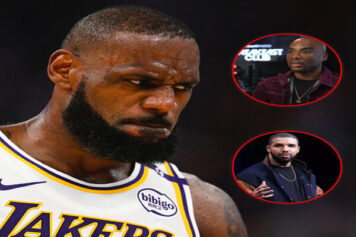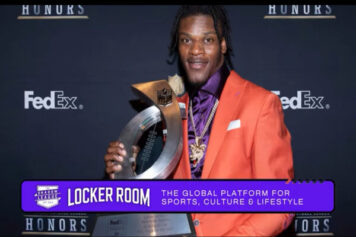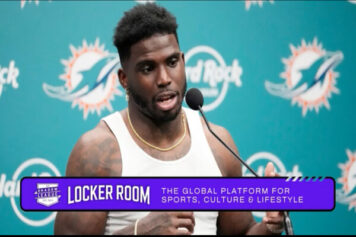The trailer for “Us” is raising a lot of questions.
Jordan Peele‘s gifted the world with his second macabre vision from Monkey Paw Productions with a trailer for the highly-anticipated film Us. The internet is going crazy with speculation regarding the plot, as well as any hidden meanings contained therein. That speculation went into overdrive when Peele stated the movie isn’t about race.
However, just because it’s not about race doesn’t mean that it doesn’t have black themes throughout. Horror is something that is distinct to the individual that is drawn toward this sometimes exhilarating, oftentimes draining emotion when faced with a particular phenomenon that they have been taught to not only fear but abhor with all of their might.
It is for that reason that some horror films appear to shoot for the lowest common denominator, and perhaps why many of the most popular films in the history of cinema share common themes. For example, slasher films featuring a masked and mysterious individual wielding an absurdly large kitchen knife are some of the most popular in cinematic history.
Movie franchises like Friday the 13th, Halloween, and even Scream to a lesser extent, are all a part of the American cultural stream of thought. The most common catalyst for fear in these films involves seeing someone running from something intent on killing them in the most painful, violating manner in a secluded area, with no weapons and means of escape. That’s a universal fear, indeed.
However, as is the case with most things concerning individuals of African descent in America, there are often two sides to every coin when it comes to these kinds of entertainment. As was recently illustrated with Get Out and Sorry to Bother You, what is considered horrific to African-Americans can be foolishly and narcissistically deemed as a comedy by many in the mainstream.
Perhaps this is due to sheer myopia and the privilege that comes with being able to laugh off things that petrify significant portions of a particular population group. Another example of this paradigm were ’90s films like Judgement Night, Survive the Night, and Death Sentence, which depicted mostly white suburbanites stranded in the ‘hood after midnight who’re pursued or set upon by a street gang for reasons that only the writer could tell you because, oftentimes, the reasons seem nebulous AF.
The contemporary fears of the mainstream population base at the time were crystallized and dramatized; random crime, urban decay, gang violence and a (alleged) disdain of the affluent by working class individuals. Meanwhile, black and brown folks who navigate these types of streets without harm in most instances enjoyed the soundtrack much more than the film itself outside of Cuba Gooding Jr.
The very first film to be air at the White House in 1918 was a film called Birth of Nation, which played on the fears of southern whites and portrayed the descendants of African slaves as grotesque, lecherous monsters addicted to the idea of stealing white women, while also portraying the wretched terrorist KKK as heroes.
In essence, what scares “us” doesn’t necessarily scare “them”, and vice versa.
When the trailer for “Us” first dropped several days ago, the internet exploded with glee, with fright and with speculation as to what the film is really about. Here’s what Jordan Peele himself had to say about the trailer during an interview with Entertainment Weekly.
Who are the Tethered?
“I think the main idea that went into writing this film is that we’re our own worst enemy, and that idea created this monster, The Tethered. I wanted to forge this new mythology that explored our duality and the duality of the characters. To the actors, I knew this was the ultimate fun because who doesn’t want to play two roles in a movie; when you’re tired in one, you get to jump into the other. But I think what was a fun challenge for actors, was finding the connections between the characters and their counterparts.”
What was the significance of the rabbits and scissors imagery?
“I’m a filmmaker and film-lover that loves iconic imagery and what it could mean. When we talk about the scissors and the rabbits, for every choice like that, there are several different reasons that clicked to me but the first test that anything passed was the genre test. So does it conjure the horror genre to me, which is a limitation that I feel very dedicated to working within. I think rabbits and scissors, they’re both scary things to me, and both inane things, so I love subverting and bringing out the scariness in things you wouldn’t necessarily associate with that.”
Peele went on to say that, unlike “Get Out”, this particular film has nothing to do with race. Despite that statement, there are still many who will theorize as to the potential racial connotations within the film itself, the fact that he mentioned the duality of the characters and how the Tethered represented that paradigm doesn’t make it about race while still allowing for a very black cinematic experience.
There is a dualism that allows us to cheer for America, but hate white supremacy. An underlying pillar of the prior is the same dualism that sometimes confuses us into believing we must be either African or American.
And that same dualism affords many of us the ability to love a country that only begrudgingly accepts Black people as citizens.
So, yes, “Us” CAN be about blackness while NOT being about race.



